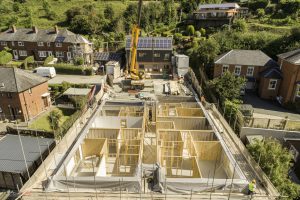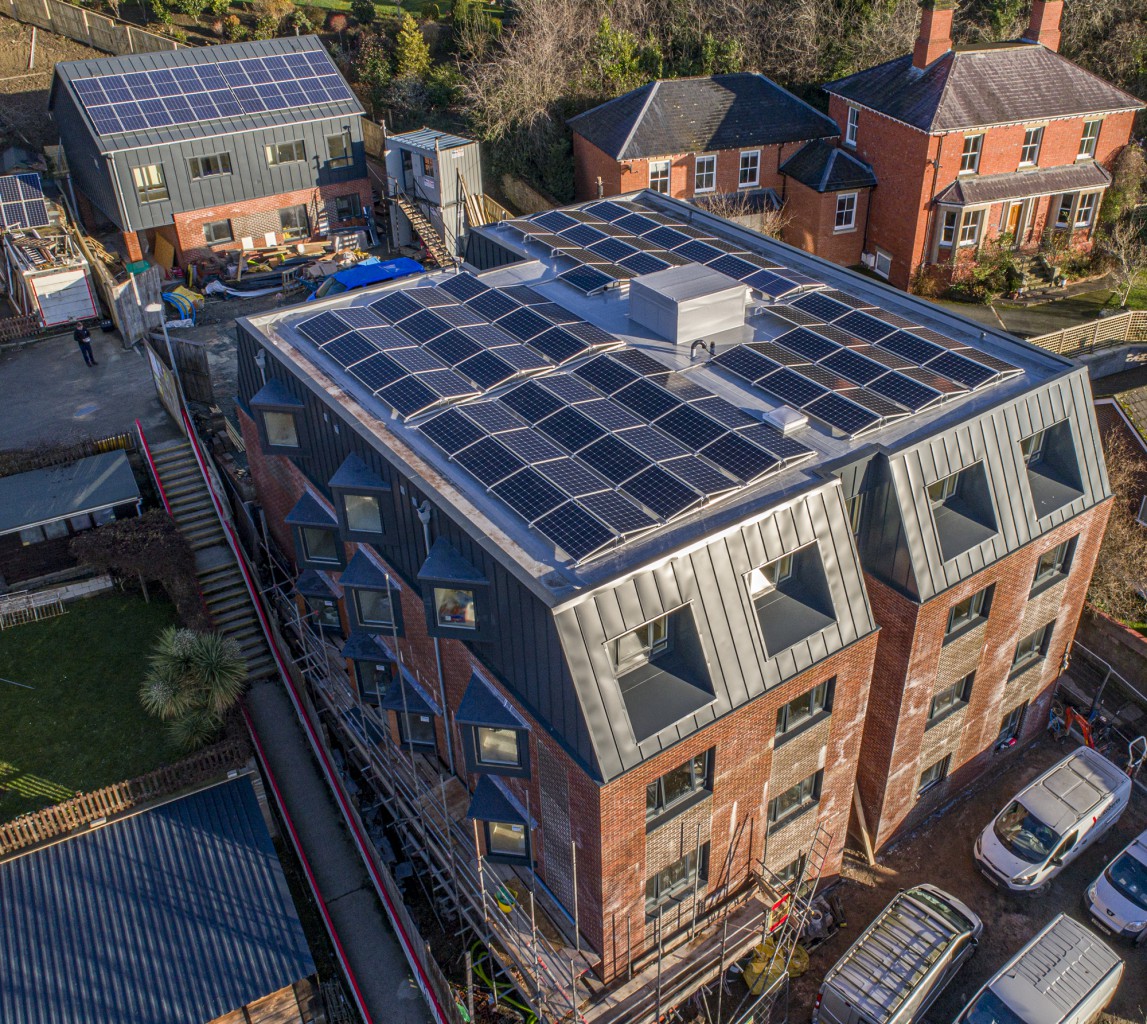The Home-Grown Homes Project (HGH) is unique as in that it has delivered a fundamental shift in the way that social and other affordable homes should be built in the future to tackle Climate Change, fuel poverty, quality and social housing.
HGH has been a great success, providing 18 sperate outputs to assist social landlords, architects, and contracts in the development of high-quality low carbon social housing fit for the 21st Century, and has resulted in the use of 5,000m3 of timber. HGH has enabled better understanding of how high-quality housing can be affordably delivered at scale and at pace from the Welsh timber supply chain, reducing future reliance on imported timber and timber products.
Project outputs include pilot tested guidance on projects such as Clyro in Powys and Chiltern Close in Cardiff, on conducting Post Occupancy Evaluation, Building Performance Evaluation and Embodied Carbon Analysis. Specification guidance has been written for timber windows, wood fibre insulation and timber cladding, and guidance for contractors on avoiding common mistakes with timber frame. Policy documents have been provided to Welsh Government to assist in developing a Welsh wood economy.

The impact of HGH has been significant. Welsh Government (WG) is promoting the use of Welsh timber in Welsh Development Quality Requirements 2021 and measurement of upfront, embodied, and whole life carbon. Partner organisations such as Powys County Council (PCC) and Wales & West Housing Association are now making Welsh timber the material of choice for use in their build programmes. Natural Resources Wales have changed their sales methods to encourage more of the timber grown on the WG Woodland Estate to flow into construction and a WG created task force has made 33 recommendations related to expanding Welsh forestry and using the timber to manufacture the products needed for the decarbonisation of the built environment.
HGH has led the debate around the use of timber and how this can assist in combatting the climate emergency in Wales, both in reducing use of materials like concrete, and in the use of homes as carbon stores. This has been championed by WKW under the Zero Carbon Homes work package, which designed a 2-bed, 4-person house that is net zero-carbon in terms of both build and operation, surpassing RIBAs 2030 Climate Challenge Target. The designs and technical information have been made free to access to ensure that the benefits of this project can be felt beyond the boundaries of Wales and social housing and are now being progressed by an innovative WG led project to deliver a net-zero carbon modular housing solution.
It has been the intention of the project that social housing in Wales is the impetus for change in the industry, and that the true benefits of change will be realised once private builders, and social landlords in other parts of the UK take on the lessons of the project.






